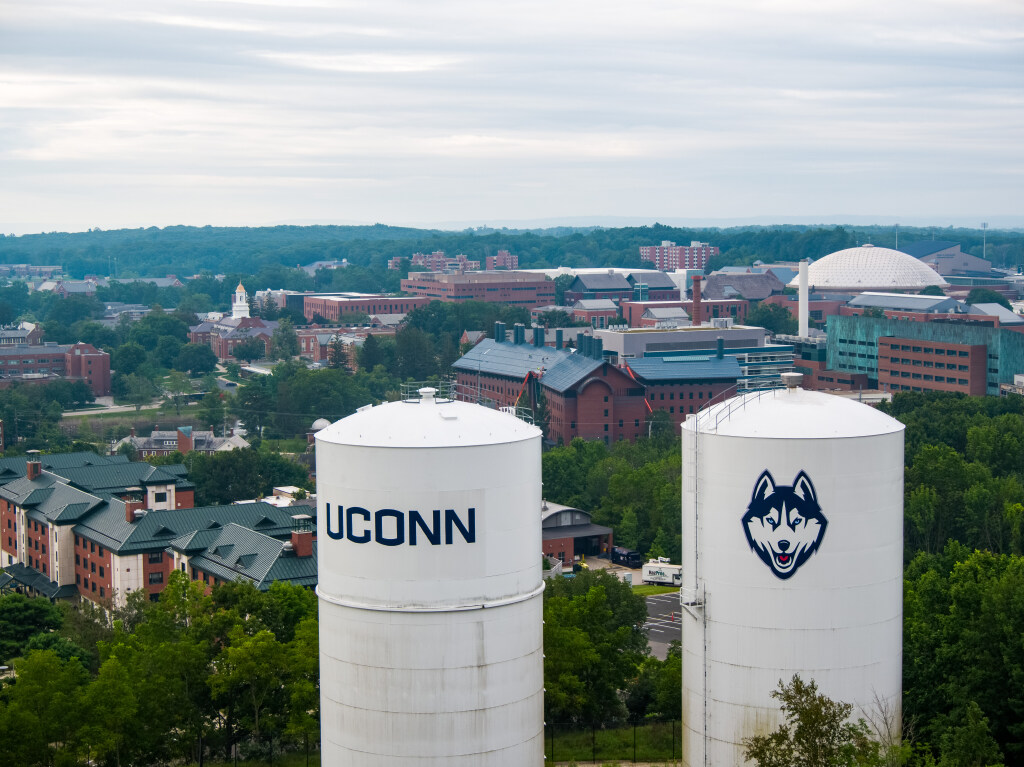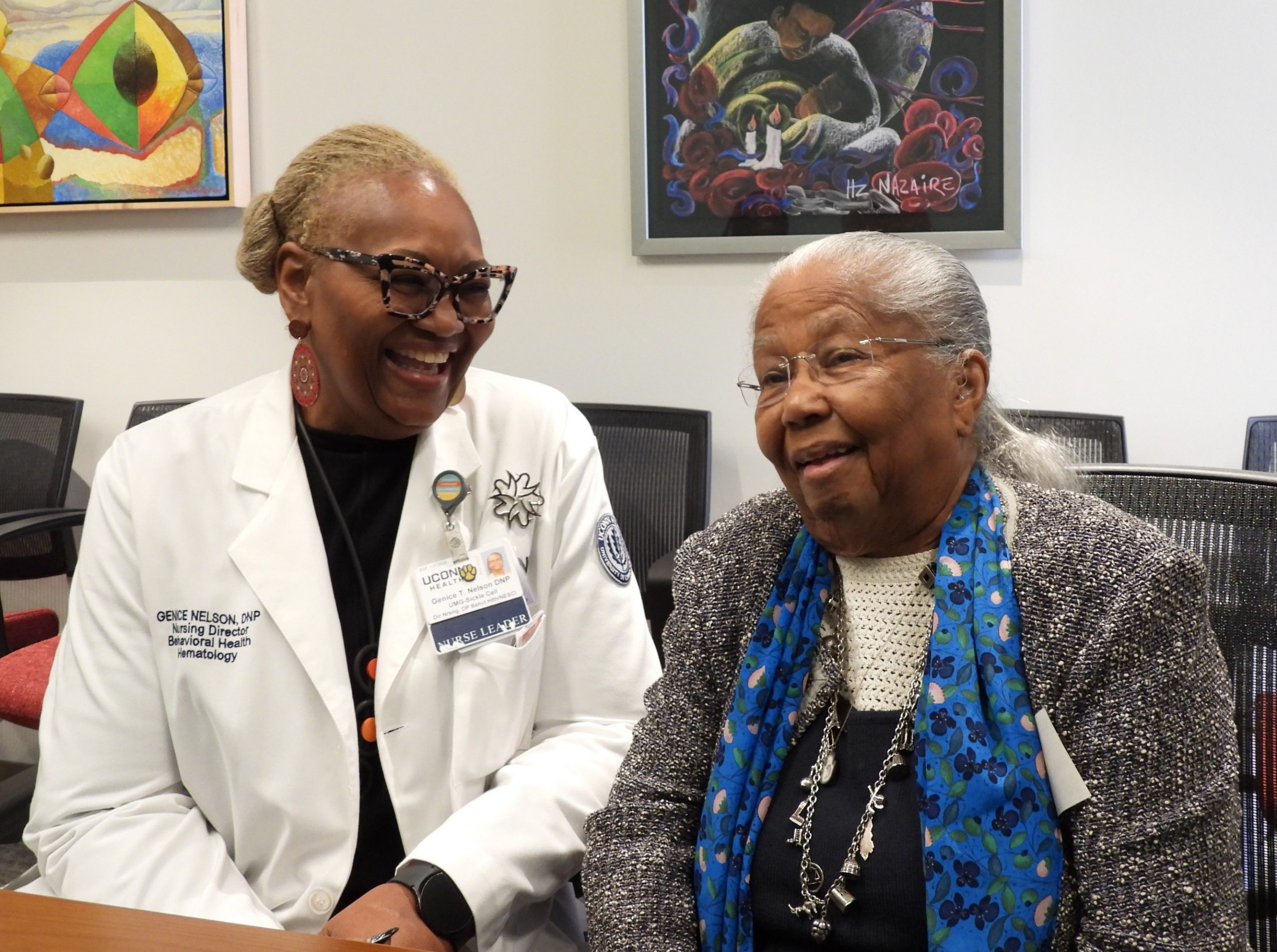by Kate Kurtin
The ongoing challenge to meet the world’s needs for plentiful, inexpensive and clean water has spawned countless studies and innovative approaches at UConn and across the globe. Assistant professors Jeffrey McCutcheon (Chemical, Materials & Biomolecular Engineering) and Baikun Li (Civil & Environmental Engineering) have teamed up on a three-year NSF grant to develop a wastewater filtration system that is less energy intensive and more cost effective than the current options.
 The first challenge is to reduce the amount of energy used in wastewater treatment. According to the U.S. Environmental Protection Agency (EPA), wastewater treatment plants (WWTPs) currently account for three percent of the electric load in the United States. Dr. McCutcheon was intrigued with the idea of developing a simpler wastewater treatment process. “The use of microbial fuel cells (MFC) may eliminate the power requirement for treatment,” he explained. Dr. Li remarked that across the U.S., there currently are no more than five research groups looking at the use of MFC’s in wastewater treatment. It’s an area Dr. Li has been working on for 20 years — since she was an undergraduate student. “Ours is the first group in the nation, maybe the world, doing large-scale microbial fuel cell studies at wastewater treatment plants using a continuous flow process. This has been our group’s breakthrough,” Li explained. The project she is referring to is called Multiple Anode Cathode — Granular Activated Covent Microbial Fuel Cells or MAC — GAC MFC. “Our final goal is to use this microbial fuel cell as the wastewater treatment process. We don’t want to limit this research to the lab,” she continued. This method cleans fouled water while collecting the energy from bacteria to power the process, thus drastically reducing, and potentially eliminating, the power requirement for the plant itself. Read more about Dr. Li’s research here.
The first challenge is to reduce the amount of energy used in wastewater treatment. According to the U.S. Environmental Protection Agency (EPA), wastewater treatment plants (WWTPs) currently account for three percent of the electric load in the United States. Dr. McCutcheon was intrigued with the idea of developing a simpler wastewater treatment process. “The use of microbial fuel cells (MFC) may eliminate the power requirement for treatment,” he explained. Dr. Li remarked that across the U.S., there currently are no more than five research groups looking at the use of MFC’s in wastewater treatment. It’s an area Dr. Li has been working on for 20 years — since she was an undergraduate student. “Ours is the first group in the nation, maybe the world, doing large-scale microbial fuel cell studies at wastewater treatment plants using a continuous flow process. This has been our group’s breakthrough,” Li explained. The project she is referring to is called Multiple Anode Cathode — Granular Activated Covent Microbial Fuel Cells or MAC — GAC MFC. “Our final goal is to use this microbial fuel cell as the wastewater treatment process. We don’t want to limit this research to the lab,” she continued. This method cleans fouled water while collecting the energy from bacteria to power the process, thus drastically reducing, and potentially eliminating, the power requirement for the plant itself. Read more about Dr. Li’s research here.
What is needed now is a process to improve the quality of the exported water to make it safe to drink. This is where Dr. McCutcheon’s contributions come in, with his focus on water reclamation and membrane development. This pairing of complementary expertise is revolutionary. Dr. Li explained, “There has been a lot of activity in the area of water reclamation and membrane development, and in my field of microbial fuel cells. However, there is currently no bridge between these two areas, making our collaboration unique. Jeff will develop a novel electrode material and then implement it into my system to improve the operational performance.”
 One potential obstacle is that Americans may refuse to drink the reclaimed water after it has been purified. “The problems with wastewater treatment and reuse are not technical, they are political,” Dr. McCutcheon explained, speaking of the public perception dilemma. “Even if it passes all FDA inspections and is pure, customers in the United States may still have some psychological concerns,” Dr. Li said. She added that the membrane effectively produces water that meets all regulatory barriers and is safe to drink. “Think about the space station,” Dr. McCutcheon said, “they reuse their water. If they can do it, why can’t we down here?”
One potential obstacle is that Americans may refuse to drink the reclaimed water after it has been purified. “The problems with wastewater treatment and reuse are not technical, they are political,” Dr. McCutcheon explained, speaking of the public perception dilemma. “Even if it passes all FDA inspections and is pure, customers in the United States may still have some psychological concerns,” Dr. Li said. She added that the membrane effectively produces water that meets all regulatory barriers and is safe to drink. “Think about the space station,” Dr. McCutcheon said, “they reuse their water. If they can do it, why can’t we down here?”
The question is a good one, and both researchers feel that Americans will come around. “We must educate the public about the importance of water and that technology development is required for its sustainable use,” Dr. McCutcheon explained. That education starts now. Through their NSF grant, the researchers have ambitious plans to involve undergraduate and graduate students. Both professors will also be involved with UConn School of Engineering outreach programs which educate primary and secondary school students and teachers (the da Vinci Project, Joule Fellows) through on-campus workshops.
Both professors are extremely enthusiastic about the research they are embarking on and think that it could have dramatic effects on the ways in which wastewater is treated and reused in the U.S. and around the world.


